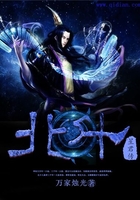"Thunder", or "Thor", is Woden's son, strongest of gods or men, patron of Starcad, whom he turned, by pulling off four arms, from a monster to a man.
He fights by Woden's side and Balder's against Hother, by whose magic wand his club (hammer) was lopped off part of its shaft, a wholly different and, a much later version than the one Snorre gives in the prose Edda.Saxo knows of Thor's journey to the haunt of giant Garfred (Geirrod) and his three daughters, and of the hurling of the iron "bloom", and of the crushing of the giantesses, though he does not seem to have known of the river-feats of either the ladies or Thor, if we may judge (never a safe thing wholly) by his silence.
Whether "Tew" is meant by the Mars of the Song of the Voice is not evident.Saxo may only be imitating the repeated catch-word "war" of the original.
"Loke" appears as Utgard-Loke, Loke of the skirts of the World, as it were; is treated as a venomous giant bound in agony under a serpent-haunted cavern (no mention is made of "Sigyn" or her pious ministry).
"Hela" seems to be meant by Saxo's Proserpina.
"Nanna" is the daughter of Gewar, and Balder sees her bathing and falls in love with her, as madly as Frey with Gertha in Skirnismal.
"Freya", the mistress of Od, the patroness of Othere the homely, the sister of Frey-Frode, and daughter of Niord-Fridlaf, appears as Gunwara Eric's love and Syritha Ottar's love and the hair-clogged maiden, as Dr.Rydberg has shown.
The gods can disguise their form, change their shape, are often met in a mist, which shrouds them save from the right person;they appear and disappear at will.For the rest they have the mental and physical characteristics of the kings and queens they protect or persecute so capriciously.They can be seen by making a magic sign and looking through a witch's arm held akimbo.They are no good comates for men or women, and to meddle with a goddess or nymph or giantess was to ensure evil or death for a man.The god's loves were apparently not always so fatal, though there seems to be some tradition to that effect.Most of the god-sprung heroes are motherless or unborn (i.e., born like Macduff by the Caesarean operation) -- Sigfred, in the Eddic Lays for instance.
Besides the gods, possibly older than they are, and presumably mightier, are the "Fates" (Norns), three Ladies who are met with together, who fulfil the parts of the gift-fairies of our Sleeping Beauty tales, and bestow endowments on the new-born child, as in the beautiful "Helge Lay", a point of the story which survives in Ogier of the Chansons de Geste, wherein Eadgar (Otkerus or Otgerus) gets what belonged to Holger (Holge), the Helga of "Beowulf's Lay".The caprices of the Fates, where one corrects or spoils the others' endowments, are seen in Saxo, when beauty, bounty, and meanness are given together.They sometimes meet heroes, as they met Helgi in the Eddic Lay (Helgi and Sigrun Lay), and help or begift them; they prepare the magic broth for Balder, are charmed with Hother's lute-playing, and bestow on him a belt of victory and a girdle of splendour, and prophesy things to come.
The verse in Biarca-mal, where "Pluto weaves the dooms of the mighty and fills Phlegethon with noble shapes," recalls Darrada-liod, and points to Woden as death-doomer of the warrior.
"Giants".-- These are stupid, mischievous, evil and cunning in Saxo's eyes.Oldest of beings, with chaotic force and exuberance, monstrous in extravagant vitality.
The giant nature of the older troll-kind is abhorrent to man and woman.But a giantess is enamoured of a youth she had fostered, and giants carry off king's daughters, and a three-bodied giant captures young children.
Giants live in caves by the sea, where they keep their treasure.
One giant, Unfoot (Ofoti), is a shepherd, like Polyphemus, and has a famous dog which passed into the charge of Biorn, and won a battle; a giantess is keeping goats in the wilds.A giant's fury is so great that it takes twelve champions to control him, when the rage is on him.The troll (like our Puss-in-Boots Ogre) can take any shape.
Monstrous apparitions are mentioned, a giant hand (like that in one story of Finn) searching for its prey among the inmates of a booth in the wilds.But this Grendel-like arm is torn off by a giantess, Hardgrip, daughter of Wainhead and niece possibly of Hafle.
The voice heard at night prophesying is that of some god or monster, possibly Woden himself.
"Dwarves".-- These Saxo calls Satyrs, and but rarely mentions.
The dwarf Miming, who lives in the desert, has a precious sword of sharpness (Mistletoe?) that could even pierce skin-hard Balder, and a ring (Draupnir) that multiplied itself for its possessor.He is trapped by the hero and robbed of his treasures.
FUNERAL RITES AND MAN'S FUTURE STATE.
"Barrow-burials".-- The obsequies of great men (such as the classic funeral of "Beowulf's Lay", 3138-80) are much noticed by Saxo, and we might expect that he knew such a poem (one similar to Ynglingatal, but not it) which, like the Books of the Kings of Israel and Judah, recorded the deaths and burials, as well as the pedigrees and deeds, of the Danish kings.
The various stages of the "obsequy by fire" are noted; the byre sometimes formed out of a ship; the "sati"; the devoted bower-maidens choosing to die with their mistress, the dead man's beloved (cf.The Eddic funerals of Balder, Sigfred, and Brunhild, in the Long "Brunhild's Lay", Tregrof Gudrumar and the lost poem of Balder's death paraphrased in the prose Edda); the last message given to the corpse on the pyre (Woden's last words to Balder are famous); the riding round the pyre; the eulogium; the piling of the barrow, which sometimes took whole days, as the size of many existing grass mounds assure us; the funeral feast, where an immense vat of ale or mead is drunk in honor of the dead; the epitaph, like an ogham, set up on a stone over the barrow.















